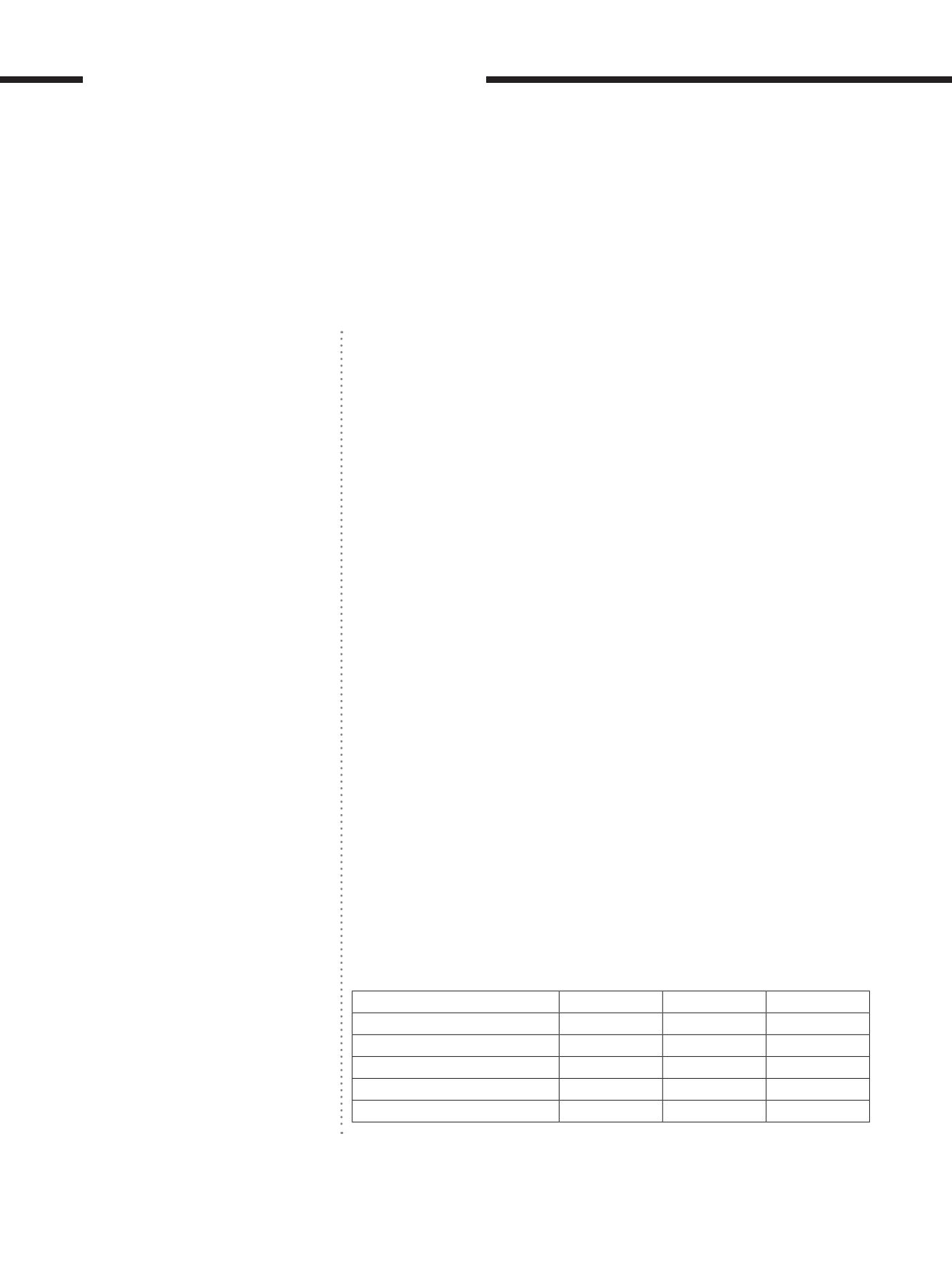

SUSTAINABILITY STATEMENT
ePOS
Among the digitalisation measures
undertaken in 2017 was the automated
tracking of inflight sales using hand-held
electronic point of sale (ePOS) devices. We
have implemented ePOS devices on all
AirAsia X flights, and are now deploying
them across our other country operations
too. Use of ePOS allows us to predict more
accurately how much food and beverage
will be sold and has so far enabled us to
reduce wastage of perishables by 20%
while also totally eliminating the use of
paper for inflight sales.
Standardising IT Security Policies
The more we digitalise our processes, the
greater the need to protect our systems
against intrusion or disruption. In 2016,
we began the process of establishing IT
security policies to govern and ensure
compliance across the Group in areas
such as access control, and acceptable/
non-acceptable use of IT equipment. In
2017, these policies formed the basis of
a Group IT Security Policy which has
been implemented across all our country
operations.
Flight Disruption/On-time Performance
In terms of flights, operational efficiency
entails keeping disruption to a minimum
and ensuring we meet an on-time
performance (OTP) rate of 85% within
15 minutes of standard departure time
(STD) and 93% within 30 minutes of STD.
In 2017, despite a lower than optimal
fleet number, we achieved a high flight
completion rate (FCR) of 98.5%. This,
however, came at the expense of our OTP
which dropped to 67%. Going forward,
with a boosted fleet and intensified focus
on initiatives such as zonal boarding, value
chain mapping and greater collaboration
across related teams, we expect
controllable delays to be contained.
Continuous Improvement Programme (CIP)
We embarked on a CIP in 2010 to create greater efficiencies across AirAsia via Lean Six
Sigma (LeSS) knowledge transfer from GE Aviation. Under a Cost Out and Avoidance
(COA) programme, a team of LeSS-certified Allstars have been tasked to identify
efficiency bottlenecks throughout the organisation and find ways to resolve these. Their
initial goal was to achieve USD20 million in project savings, inclusive of training costs.
This target was achieved in 2017. At the same time, another 11 Allstars achieved the LeSS
Green Belt, resulting in a total of 25 Green Belt holders at year end.
Moving forward, four LeSS agents will focus on digitalising various guest communication
platforms such as phone lines and email with the use of chatbots and system-enabled
scripts. Another area of focus will be to address regulatory and standards gaps as
highlighted by audit data.
SERVICE EFFICIENCY
Although we are a low-cost airline, we believe we are able to offer services on par with,
or better than, legacy carriers. Strong emphasis at AirAsia on the use of IT and, now,
digital technology has seen us pioneer a number of guest service innovations in the
regional aviation industry. We were among the pioneers of online booking followed by
sms and mobile web booking. Then came our self check-in kiosks, baggage self-tagging
and onboard wifi. We are continuing to build on the range of digital services offered as
well as the quality of our service delivery, while also enhancing the process by which
guests can provide us honest feedback on their experience flying with AirAsia. The
intention is to continuously identify and fill in gaps, and establish AirAsia as a low-cost,
high-class way to fly.
Mobile app and e-boarding pass
In 2010, we were one of the first in the region to introduce a mobile app enabling guests
to book flights, manage their bookings and check-in via their mobile phones. In 2016, we
further enhanced the AirAsia Mobile App (iOS & Android) to allow guests to make use of
the eBoarding Pass to proceed from the departure hall straight to the boarding gate.
The convenience offered can be seen in the numbers. Between 2016 and 2017, we have
seen a 38% increase in the number of app users from 63.9 million to 103.3 million while
the number of mobile bookings increased by 65%, from 1.3 million to 3.7 million.
E-boarding functions
2016 (mil)
2017 (mil)
Growth %
Users
63.9
103.3
38%
Bookings
1.3
3.7
65%
App downloads
7.8
10.4
25%
Mobile check-in
3.7
6.2
40%
Mobile check-in contribution
6%
9%
3%
[ ]
AirAsia Group Berhad
SUSTAINABILITY
174


















